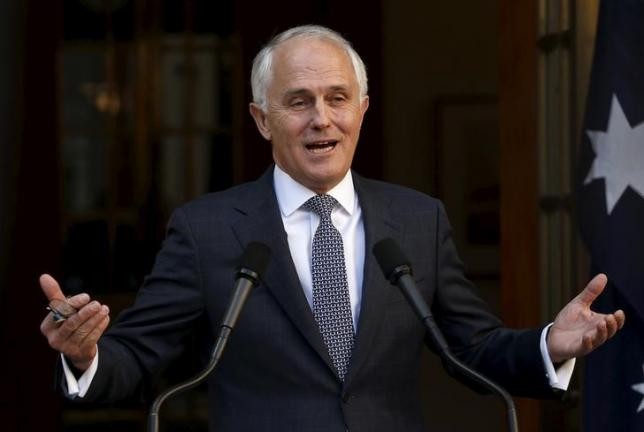Prime Minister Malcolm Turnbull upheld trade ties between China and Australia on his first visit in the country since taking his post last year.
On his two-day mission, Turnbull recognized the bilateral free trade agreement inked in 2014 that offers key opportunities for Australians exporting to China.
The visit comes on the back of China's slowing economy, which economists postulate could reverberate across many countries, including Australia.
According to Fox News, China accounts for more than 30 percent of Australia's exports, and China's weakening demand for coal, iron ore and other sources "has taken a major toll on Australia's economy."
Two-way trade between [the two countries] totalled AUD150 billion or $115 billion in the last financial year, down 6.3 percent, the report added.
The Australian PM also urged China to continue opening its market to the rest of the world.
"China's own long journey toward open markets and rule-of-law will be well worth the challenges along the way," Turnbull said.
The Australian PM also held Deng Xiaoping's "reform and opening policy" as something to emulate, stating that "a "closed-door policy prevents any country from developing."
"The truth is, as I said in Shanghai, the more open China is, the stronger it is," Turnbull was quoted as saying in a Reuters report.
"Deng Xiaoping said, in the days when China was open to the world it was strong; when it became closed it became weak," Turnball added.
Deng is a known reformist leader in China.
Aside from boosting economic ties, the two countries also inked five documents that strengthen their partnership in science, mining, tourism and industrial parks.
In addition, Australia will grant 10-year visas to China and permit online applications. This will be the first time Australia has ever made such an agreement with the country.
With more than 1,000 delegates consisting of business leaders, Turnball's visit is said to be the largest trade-related undertaking by an Australian leader.



























